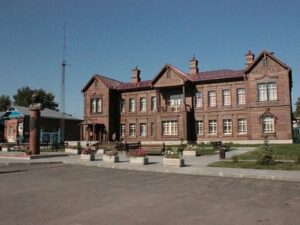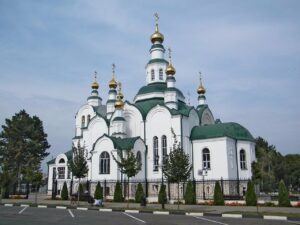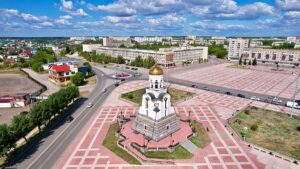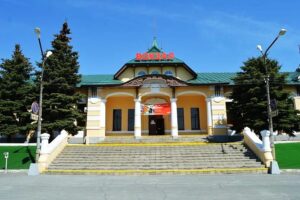Discovering Devon: A Comprehensive Review

Devon, located in the southwest of England, is a county celebrated for its stunning coastline, rolling countryside, historic landmarks, and vibrant cultural heritage. This extensive article delves into Devon’s history, geography, economy, culture, notable landmarks, and its significance as a cherished region within the United Kingdom.
History of Devon
Devon has a rich and varied history that spans millennia, with evidence of human habitation dating back to the Stone Age. The region’s Celtic roots are reflected in its ancient settlements and hillforts, which flourished during the Iron Age. Devon’s strategic coastal position made it a target for Roman conquest, and the Romans established settlements such as Isca Dumnoniorum (modern-day Exeter).
During the medieval period, Devon grew prosperous through agriculture, fishing, and trade, with bustling ports like Plymouth and Dartmouth serving as hubs for maritime commerce and exploration. The county’s strategic importance was highlighted during the Tudor era, when Devon played a significant role in naval expeditions and exploration voyages, including those of Sir Francis Drake and Sir Walter Raleigh.
In the Industrial Revolution, Devon saw advancements in mining, quarrying, and the production of textiles and ceramics, contributing to its economic growth and industrial heritage. Today, Devon retains its rural charm while embracing modern developments in tourism, agriculture, and renewable energy.
Geography and Demographics
Devon is located in the southwest of England, bordered by Cornwall to the west, Somerset and Dorset to the east, and the English Channel to the south. The county is known for its diverse landscapes, including the rugged cliffs and sandy beaches of the Jurassic Coast (a UNESCO World Heritage Site), the rolling hills of Dartmoor and Exmoor National Parks, and fertile river valleys such as the Exe and the Teign.
The population of Devon is characterized by a mix of urban centers, market towns, and rural villages. Major towns and cities include Exeter (the county town), Plymouth, Torquay, Paignton, and Barnstaple, each contributing to the county’s cultural, economic, and social fabric.
Economy and Industry
Devon’s economy is diverse, supported by various sectors:
- Tourism: Devon is a popular tourist destination, attracting visitors with its natural beauty, outdoor activities, and cultural attractions such as historic castles (e.g., Powderham Castle), stately homes (e.g., Castle Drogo), and picturesque villages (e.g., Clovelly).
- Agriculture: Agriculture remains an important economic activity in rural Devon, with dairy farming, sheep rearing, and crop cultivation contributing to the county’s agricultural output. The region is known for its high-quality produce, including Devonshire cream teas and locally sourced meats and seafood.
- Maritime Industries: Devon has a strong maritime heritage, with fishing, boatbuilding, and maritime trade playing key roles in coastal communities such as Brixham and Salcombe. The county’s ports and harbors support commercial shipping, fishing fleets, and leisure boating activities.
Culture and Heritage
Devon’s cultural heritage is celebrated through its historic landmarks, museums, festivals, and artistic traditions:
- Literary Connections: Devon has inspired writers and poets such as Agatha Christie (who lived in Torquay), Sir Arthur Conan Doyle (who wrote Sherlock Holmes stories while living in Dartmoor), and the Romantic poet Samuel Taylor Coleridge (who wrote “Kubla Khan” while staying in Culbone).
- Historic Landmarks: The county is home to notable landmarks such as Dartmoor’s prehistoric stone circles (e.g., Merrivale), medieval cathedrals (e.g., Exeter Cathedral), and Victorian engineering marvels (e.g., Brunel’s Great Western Railway).
- Arts and Festivals: Devon hosts a range of arts festivals, exhibitions, and cultural events throughout the year, including the Dartington International Summer School & Festival, the Appledore Book Festival, and the Devon County Show, which celebrates agriculture, crafts, and rural life.
Education and Research
Devon is home to educational institutions that support its cultural and economic development:
- University of Exeter: Offers undergraduate and postgraduate programs across disciplines such as humanities, sciences, business, and medicine, contributing to research innovation and academic excellence.
- Further Education Colleges: Provide vocational training and higher education courses in partnership with local industries, supporting skills development and workforce readiness.
Notable Landmarks and Attractions
Devon offers numerous landmarks and attractions that showcase its natural beauty, history, and cultural significance:
- Dartmoor National Park: Known for its rugged granite tors, ancient woodlands, and wild ponies, offering hiking, cycling, and outdoor adventures amidst stunning landscapes.
- Jurassic Coast: A UNESCO World Heritage Site stretching from Exmouth to Studland Bay, renowned for its fossil-rich cliffs, picturesque coves, and geological significance dating back millions of years.
- Plymouth Hoe: A historic waterfront area with panoramic views of Plymouth Sound, featuring the iconic Smeaton’s Tower lighthouse and memorials commemorating maritime history and naval heroes.
Events and Festivals
Devon hosts a variety of events and festivals that celebrate its heritage, culture, and community spirit:
- Totnes Orange Races: An annual tradition dating back centuries, where competitors race down Totnes’ steep Fore Street while flipping oranges with wooden spoons.
- Sidmouth Folk Festival: A celebration of folk music, dance, and arts held in the coastal town of Sidmouth, featuring concerts, workshops, and lively street performances.
- Dartmouth Royal Regatta: A prestigious sailing regatta and community festival held annually in Dartmouth, with yacht races, fireworks displays, and waterfront entertainment.
Sustainability and Conservation
Devon is committed to sustainability and conservation initiatives, with efforts focused on protecting its natural landscapes, promoting renewable energy sources, and enhancing biodiversity through national parks, nature reserves, and environmental stewardship programs.
Conclusion
Devon captivates residents and visitors alike with its breathtaking landscapes, rich history, and vibrant cultural scene. From its ancient origins and maritime heritage to its modern industries and outdoor pursuits, Devon offers a blend of tradition, innovation, and natural beauty that defines its unique character within the United Kingdom. Whether exploring Dartmoor’s tors, enjoying coastal walks along the Jurassic Coast, or participating in local festivals, Devon invites discovery and appreciation of its timeless charm and enduring legacy as a region of cultural and natural significance in England’s southwest.




